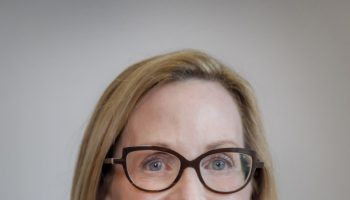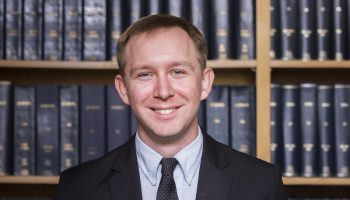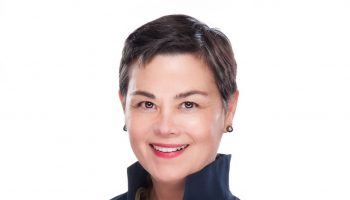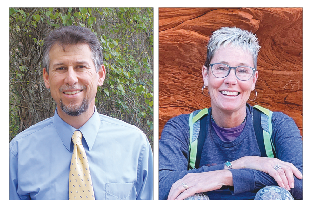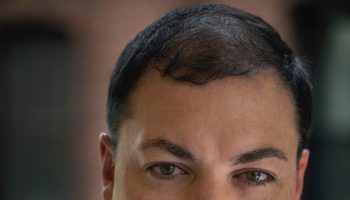Six months ago, when Michael E. Hill began his tenure as the Institution’s 18th president, Chautauqua was immersed in a wet and chilly winter, a deep pit was being dug for the new Amphitheater, and there may well have been as many construction workers on the grounds as there were residents.
Within and beyond the Colonnade, Hill was becoming acquainted with diverse groups of Chautauquans.
“Off-season, going to communities (and) meeting Chautauquans was incredibly positive,” he said. “There’s a sense of welcome and openness to who I am and what I wanted to do. Off-season, watching hundreds of little kids come for arts and education activities was unbelievably uplifting.”
There were also extremely special moments that were quieter, such as when Hill had each of the full-time departmental staffs to the President’s Cottage for dinner, and they talked about their experiences and what they most wanted to do at Chautauqua.
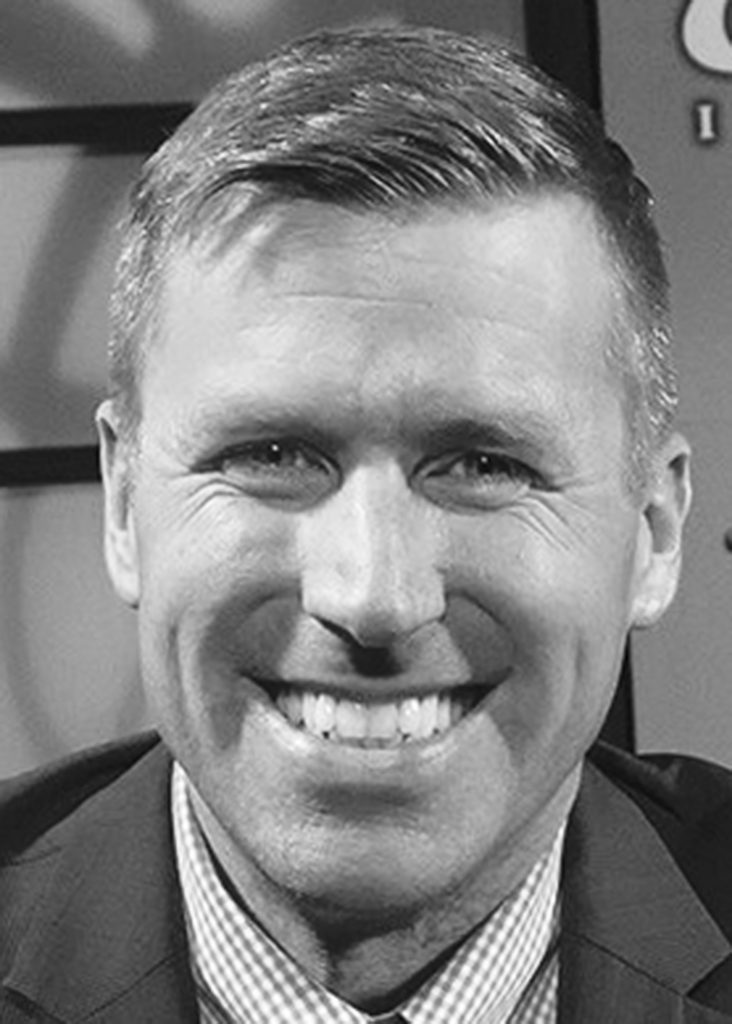
With the season underway, Hill has been meeting with many summer Chautauquan communities.
“This cycle of welcoming people back I’ve found unbelievably exhilarating,” he said. “Not only because it’s so nice to see the grounds populated again, but there’s an energy — a collective community energy — that I find to be really thrilling.”
At 9:15 a.m. on Thursday, Hill will engage in a Q-and-A at the Chautauqua Women’s Club as part of the CWC’s Chautauqua Speaks series.
“All of these events for me in the first year will be a get-to-know-you moment and an opportunity to reflect with specific groups on perspectives about what they care about,” he said. “This is my chance to be with the Women’s Club.”
Hill hopes that the audience will come away with a sense of who he is as a member of their community, and that the conversation will help participants understand that they are as much, if not more, a part of the answer to what is discussed as he is.
“I can represent things and ideas symbolically, but if a community doesn’t engage in this prescription, I can talk all I want and it will just be nice talking points,” Hill said. “So I hope people leave feeling like they’re empowered to play an active role in what we’re talking about.”
According to Hill, Chautauqua has a distinct role to play within and beyond U.S. borders. Not only does it have a unique blend of topics, discussions and activities, but because all of these are nestled within a dedicated community, there’s an opportunity to try to figure things out in a way that other places cannot.
“I think a lot of that boils down to how we talk to one another and treat one another, and this whole notion of a muscular civic dialogue, and I’m energized by it,” Hill said. “I think we have a possibility to give a gift back to the nation if we can figure it out here.”
When he spoke in mid-June to the staff of The Chautauquan Daily, Hill shared his vision of Chautauqua Institution moving beyond curating nine weeks of conversations to doing good throughout the year.
“If we give back to the nation, we might save some democracy along the way,” he said then.
Hill has been part of, if not also the impetus for, some notable gift-giving efforts. As president and CEO of Youth For Understanding, he initiated a series of virtual exchanges that are bringing international youth engagement and collaboration to places they have never been before due to lack of funding.
In Washington, D.C., he also directed the effort culminating in the expansion of the historic Arena Stage, employed technology at United Cerebral Palsy to help mothers, fathers and children feel less alone, and participated in a debate about what a generous spirit of Christianity might look like during his tenure at the National Cathedral.
“I played distinct roles in each … but none were mine solely,” Hill said.

